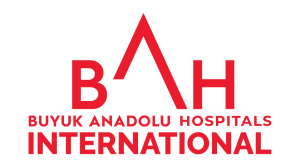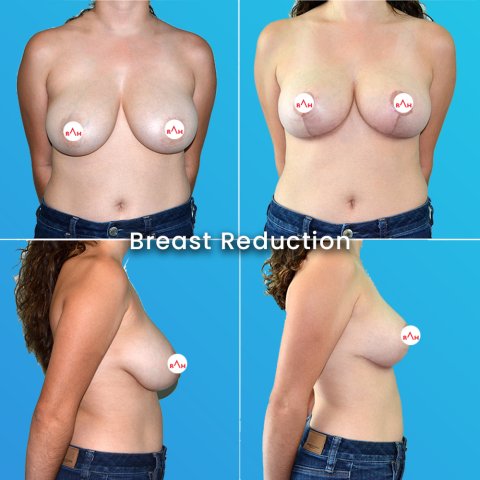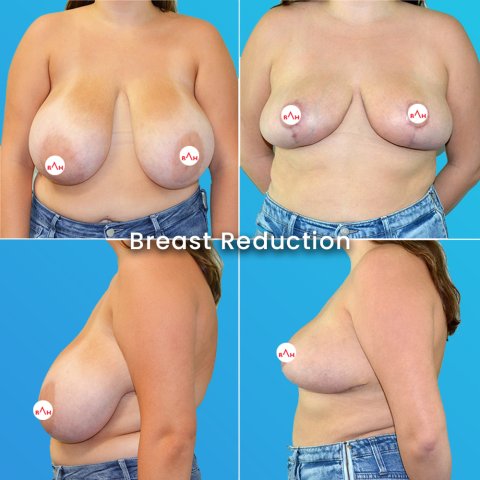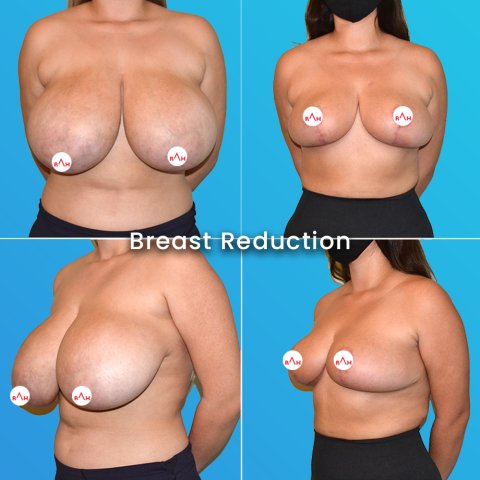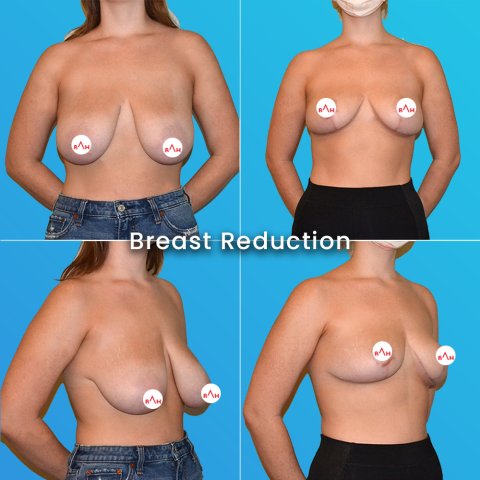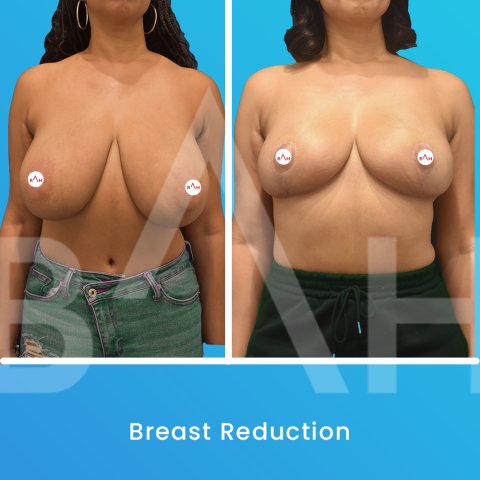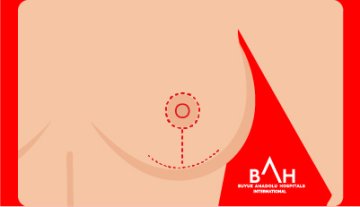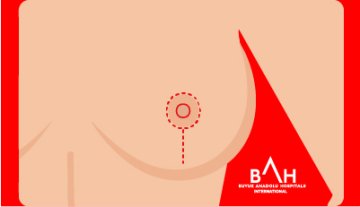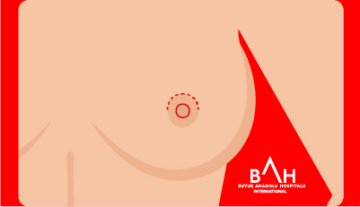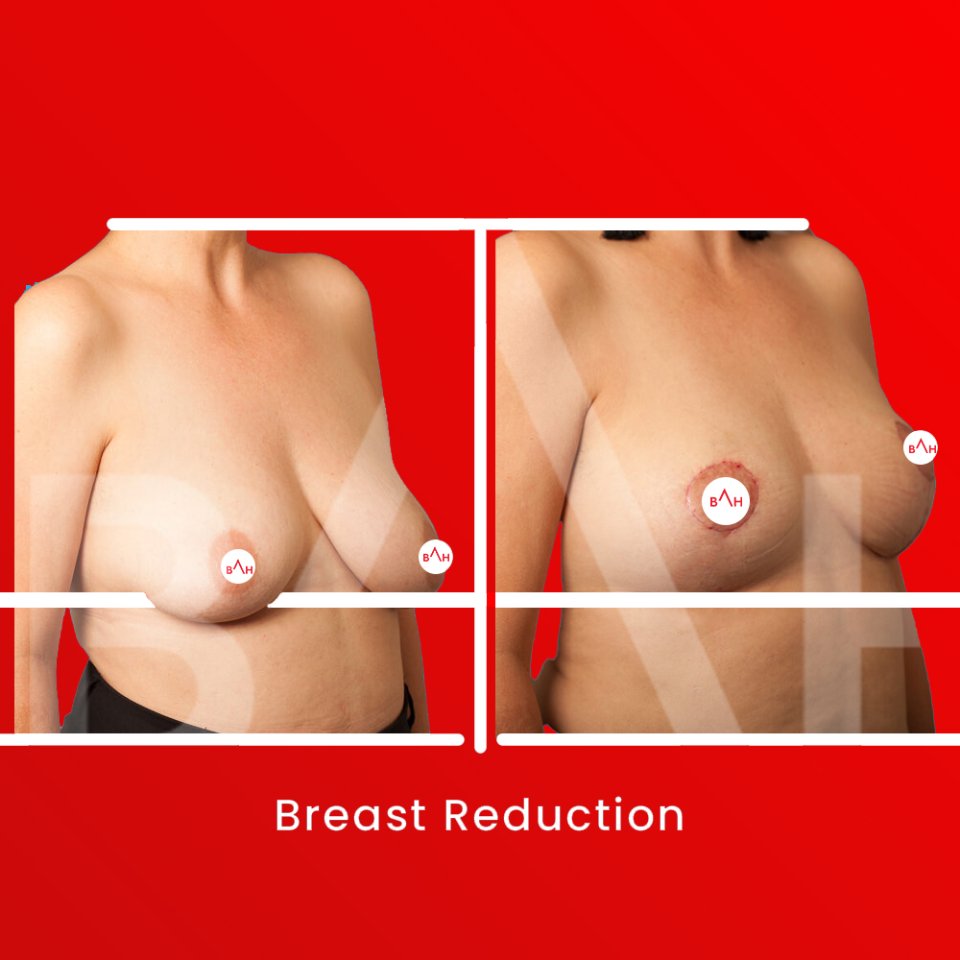
What Is Breast Reduction?
Breast reduction surgery, or reduction mammoplasty, is a specialized procedure that removes excess breast fat, glandular tissue, and skin to create a smaller, lighter, and more proportionate breast shape. It's often recommended for individuals who suffer from chronic discomfort in the back, neck, or shoulders due to overly large breasts, or who feel restricted in daily activities and physical movement.
Beyond relieving physical symptoms, this surgery enhances posture, boosts self-confidence, and restores overall comfort. It not only reduces volume but also reshapes and lifts the breasts, giving them a firmer, more balanced look that fits naturally with your body frame.
Breast Reduction Cost in Turkey – Büyük Anadolu Hospital International
At Büyük Anadolu Hospital International, we provide professional breast reduction surgery in Turkey, combining affordability with premium medical standards. Our internationally certified surgeons perform the procedure in state-of-the-art facilities, ensuring both safety and aesthetic excellence.
Breast Reduction Cost in Turkey – Büyük Anadolu Hospital International
Why Choose Büyük Anadolu Hospitals?
At Büyük Anadolu Hospitals, we are not a clinic or third-party facilitator — we are a fully accredited hospital group with over 30 years of experience in Turkish healthcare. With more than 150 distinguished physicians and advanced medical infrastructure, we deliver trusted care tailored to international patients.
Breast Reduction Surgery: Before After
Personalized Breast Reduction Consultation Form
Who Is a Good Candidate for Breast Reduction?
Breast reduction surgery is ideal for individuals who experience physical discomfort or emotional distress due to overly large breasts. The procedure aims to restore balance, comfort, and confidence by reducing excess tissue, reshaping the breasts, and improving posture.
At Büyük Anadolu Hospital International, we carefully evaluate each patient to ensure the procedure is safe, effective, and aligned with their goals.
From Consultation to Operation
Breast Reduction Surgery Step by Step
Breast reduction surgery is a carefully planned process that addresses both physical discomfort and aesthetic concerns. The journey begins with a detailed consultation, where your individual goals, symptoms, and overall health are thoroughly assessed.
During this stage, the surgeon evaluates your breast shape, size, and skin elasticity to determine the most suitable surgical approach. Personalized recommendations are made to ensure the procedure aligns with your expectations and anatomy.
Once the treatment plan is confirmed, all preoperative preparations are handled, and your surgery is scheduled. On the day of the operation, specialized techniques are used to remove excess tissue and reshape the breasts for a more balanced, lifted appearance.
Every step—from your first meeting to your final follow-up—is carried out with precision and care to ensure safe results and a smooth recovery.
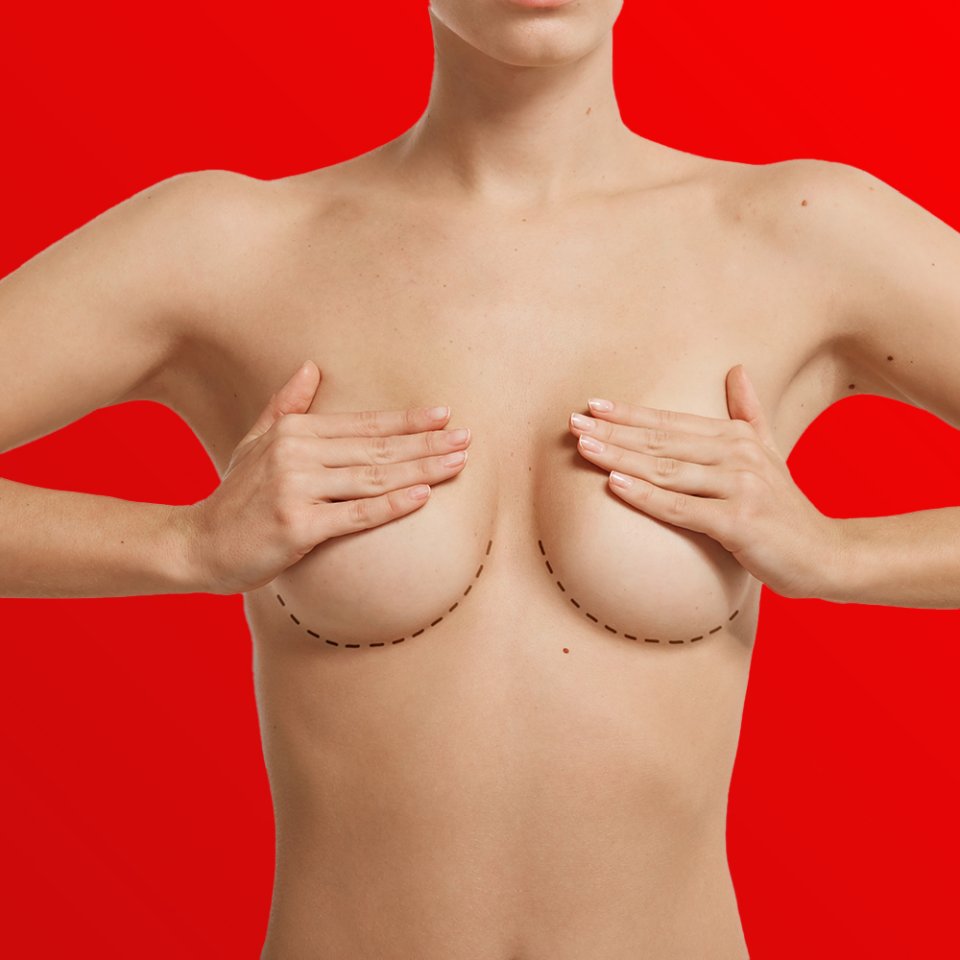
Breast Reduction Medical Consultation
The journey toward breast reduction begins with a comprehensive medical consultation designed to explore your health background, physical discomforts, and personal aesthetic goals. During this private session, your surgeon will evaluate the size and shape of your breasts, check skin tone and elasticity, and discuss any issues such as chronic pain in the shoulders, neck, or back caused by large breast volume.
Special focus is placed on identifying factors like asymmetry, nipple placement, and overall tissue condition to create a surgical plan tailored specifically to your body. Your surgeon will also outline the incision options—such as vertical, anchor, or around-the-areola techniques—based on your anatomical structure and how much reduction is needed.
This initial consultation provides a valuable space for open discussion, helping you gain a clear understanding of the procedure and feel fully prepared and confident moving forward.
Breast Reduction Surgery Process
Breast reduction is a structured surgical procedure that involves multiple stages, each aimed at reducing the size of the breasts while enhancing comfort and achieving a more balanced body contour. The surgery is meticulously planned and executed, focusing on accuracy, patient safety, and natural-looking results. Every step — from incision to tissue reshaping — is tailored to suit the individual's anatomy and aesthetic goals.
Anesthesia
The procedure starts with general anesthesia, allowing you to stay fully asleep and free from pain or discomfort during the entire surgery. This ensures a smooth and controlled surgical experience from start to finish.
Incision Placement
The surgeon strategically creates incisions tailored to your breast anatomy and the extent of reduction required. Common techniques include the vertical (lollipop) incision, ideal for moderate reductions with limited scarring, and the anchor (inverted T) incision, suited for larger reductions, offering greater reshaping flexibility while resulting in more noticeable scarring. Each approach is selected to balance optimal results with minimal visible marks.
Tissue and Fat Removal
The surgeon removes surplus breast tissue, fat, and skin to reduce the overall breast volume and enhance shape. In some instances, liposuction is used alongside surgical excision to sculpt a more refined, natural contour.
Nipple and Areola Repositioning
To match the newly contoured breast shape, the nipple and areola are carefully moved to a higher, more youthful position. When needed, the areola may also be resized to maintain proportionality and achieve a more harmonious, natural appearance.
Skin Tightening and Reshaping
After tissue removal, the remaining breast tissue and skin are meticulously reshaped to form symmetrical, proportionate breasts. Excess skin is trimmed, and the surrounding tissue is tightened to enhance firmness, lift, and overall contour for a natural, balanced result.
Closing the Incisions
After sculpting the breasts to the desired shape, the surgeon closes the incisions using fine sutures or medical-grade adhesive strips. Special care is taken to minimize tension along the incision lines, supporting optimal healing and reducing the visibility of scars over time
Application of Dressings and Support Garments
Sterile dressings are gently placed over the incision sites to safeguard against infection and promote healing. A specially designed support bra or compression garment is then worn to reduce swelling, support the healing tissues, and help preserve the newly contoured breast shape during the initial recovery period.
Breast Reduction Surgery: Key Highlights
Types of Incisions Used in Breast Reduction Surgery
Breast reduction procedures involve various incision methods tailored to individual patient needs. The choice of technique depends on breast size, the amount of tissue to be removed, and the elasticity of the skin. Each incision type is designed to maximize aesthetic outcomes while minimizing scar visibility and maintaining breast sensation and function.
When Is the Free Nipple Graft Technique Used?
The Free Nipple Graft (FNG) technique is generally reserved for cases where traditional breast reduction approaches pose risks to nipple viability. Surgeons may choose this method under the following conditions:
Although this method sacrifices nipple sensation and breastfeeding capability, it delivers significant physical relief and aesthetic improvement for patients with challenging anatomical conditions.
- Extremely Large Breasts: In patients requiring a major reduction in breast size, the amount of tissue removed can threaten the blood supply to the nipple if it remains attached. Detaching and reapplying the nipple as a graft ensures its survival.
- Severe Breast Ptosis (Sagging): When the nipple must be lifted a great distance, maintaining its connection to internal blood vessels can lead to circulatory compromise or necrosis. Grafting allows for safe repositioning.
- Reduced Skin Elasticity: In some cases, the skin lacks the flexibility needed for traditional repositioning techniques. A free nipple graft offers a viable alternative, ensuring both aesthetic balance and surgical safety.

Considerations and Results of the Free Nipple Graft Technique
While the free nipple graft method is highly effective for achieving a smaller, lifted, and more proportionate breast appearance in complex cases, it’s essential to understand the associated trade-offs before opting for this approach:
Permanent Loss of Sensation: Because the nipple-areola complex is completely removed and reattached as a skin graft, its original nerve connections are severed. This results in permanent numbness in the nipple area.
Inability to Breastfeed: The procedure also disrupts the connection between the nipple and underlying milk ducts and glandular tissue, meaning patients will no longer be able to breastfeed following surgery.
Despite these limitations, the technique provides reliable and safe outcomes in situations where other methods might compromise nipple survival. It's typically chosen when aesthetic symmetry and health outcomes take precedence over sensory and functional preservation.
Breast Reduction Recovery Timeline
Healing after breast reduction is a gradual process, unfolding in clearly defined stages. Each phase marks progress in reducing swelling, restoring comfort, and revealing the final breast contour. Below is a general overview of what most patients can expect during recovery, helping you prepare for each step with realistic expectations and peace of mind.
Potential Risks After Breast Reduction Surgery
Breast reduction is a highly effective procedure that relieves the physical strain caused by excessively large breasts while also enhancing body proportion and aesthetics. Although considered safe when performed by experienced specialists, it remains a surgical operation and, as such, involves certain risks and side effects.
At Büyük Anadolu Hospital, we are committed to patient safety. Every breast reduction case is preceded by a detailed health assessment to ensure suitability for the procedure. Our surgeons apply modern techniques to minimize complications, while our dedicated aftercare protocols are designed to support a healthy, comfortable recovery process.
| Potential Risk | Our Preventive Approach |
|---|---|
| Infection | Comprehensive screenings are done before surgery. Preventive antibiotics and wound care instructions reduce infection risk. |
| Changes in Nipple Sensation | Advanced techniques protect nerve pathways. Any temporary loss is monitored in post-op checkups. |
| Breast Asymmetry | Precise anatomical planning ensures balance, with follow-ups to track symmetrical healing. |
| Breastfeeding Limitations | Milk ducts are preserved when possible. In rare free nipple graft cases, breastfeeding is no longer possible. |
| Anesthesia-Related Issues | Health is reviewed by anesthesia team; tailored anesthesia plan ensures safety and comfort. |
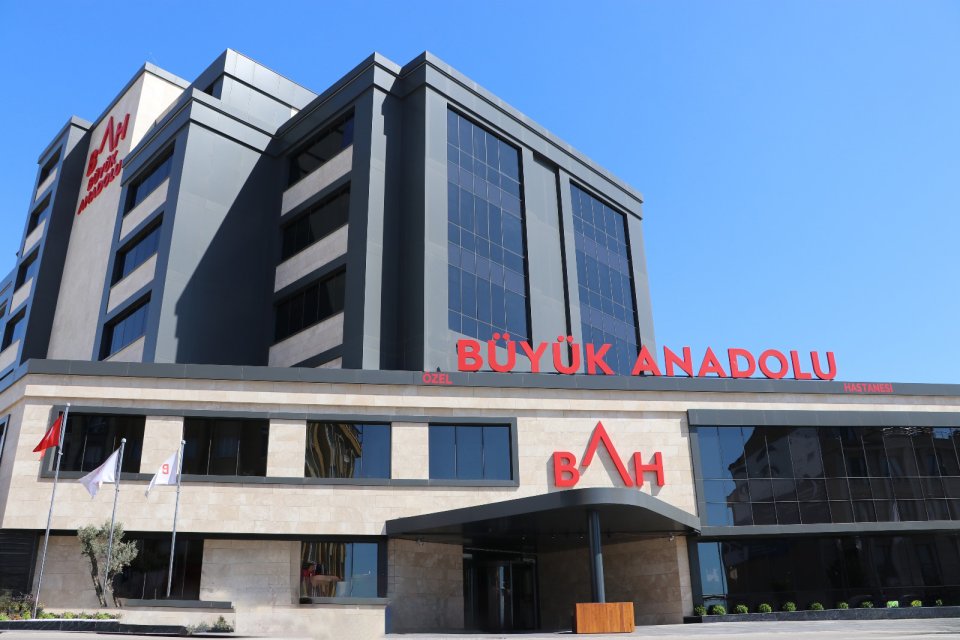
Breast Reduction Aftercare at Büyük Anadolu Hospital
At Büyük Anadolu Hospital, we recognize that proper aftercare is vital for a smooth recovery and long-lasting results following breast reduction surgery. Our experienced medical team is committed to supporting you every step of the way, ensuring your comfort, safety, and optimal healing.
During your stay at our hospital and partner hotel, you will receive daily visits from our nursing staff to closely monitor your progress. These check-ins include incision inspection, dressing changes, and overall assessment of your recovery status. You'll also receive detailed instructions on how to care for your surgical sites, properly wear your compression garment, and manage any discomfort using prescribed medications.
Your surgeon will guide you on safe sleeping positions, restricted movements, and which daily activities to avoid in order to protect your healing tissues and support the recovery process.
Our commitment doesn’t end when you leave Turkey. We provide continuous follow-up for up to 12 months after your surgery, remaining available to answer your questions, evaluate your progress, and offer medical support whenever needed. Additionally, patients in the UK can access our consultation network for ongoing care and peace of mind upon returning home.
At Büyük Anadolu Hospital, we prioritize your well-being from the first day of your journey to full recovery—providing personalized care, professional expertise, and reliable support throughout your healing process.
Breast Reduction FAQ
Yes, breast reduction is widely regarded as a safe and reliable surgical procedure—especially when performed by a qualified, experienced surgeon in a certified medical facility like Büyük Anadolu Hospital.
While all surgeries carry some level of risk, breast reduction has a high success rate and low complication rate when proper protocols are followed. Our team takes every precaution to ensure patient safety, starting with comprehensive pre-operative evaluations, personalized surgical planning, and attentive post-operative care.
By choosing a trusted hospital and following your surgeon’s aftercare instructions closely, you can greatly reduce the likelihood of complications and enjoy a smooth, successful recovery.
Yes, breast reduction is widely regarded as a safe and reliable surgical procedure—especially when performed by a qualified, experienced surgeon in a certified medical facility like Büyük Anadolu Hospital.
While all surgeries carry some level of risk, breast reduction has a high success rate and low complication rate when proper protocols are followed. Our team takes every precaution to ensure patient safety, starting with comprehensive pre-operative evaluations, personalized surgical planning, and attentive post-operative care.
By choosing a trusted hospital and following your surgeon’s aftercare instructions closely, you can greatly reduce the likelihood of complications and enjoy a smooth, successful recovery.
Yes, breast reduction is widely regarded as a safe and reliable surgical procedure—especially when performed by a qualified, experienced surgeon in a certified medical facility like Büyük Anadolu Hospital.
While all surgeries carry some level of risk, breast reduction has a high success rate and low complication rate when proper protocols are followed. Our team takes every precaution to ensure patient safety, starting with comprehensive pre-operative evaluations, personalized surgical planning, and attentive post-operative care.
By choosing a trusted hospital and following your surgeon’s aftercare instructions closely, you can greatly reduce the likelihood of complications and enjoy a smooth, successful recovery.
To minimize scarring, follow your surgeon’s aftercare instructions, keep the area clean, avoid tension on incisions, use recommended scar creams, and protect your skin from the sun. Scars usually fade over time.
No, implants aren’t needed for breast reduction. But if you want added volume or upper fullness, your surgeon may suggest combining the procedure with implants.
Breastfeeding after breast reduction surgery is possible for some women, but not guaranteed. The outcome largely depends on the surgical technique used and how much glandular tissue or milk ducts are affected during the procedure.
At Büyük Anadolu Hospital, our surgeons aim to preserve as much of the milk-producing structures as possible. However, in cases where a large amount of tissue must be removed or if techniques like the free nipple graft are required, the ability to breastfeed may be significantly reduced or lost.
If breastfeeding in the future is important to you, be sure to discuss this with your surgeon during your consultation. We will tailor the surgical plan to prioritize your goals while ensuring your safety and comfort.
It depends on your breast size, symptoms, and goals. Your surgeon will tailor the procedure and discuss the expected amount during consultation.
Some swelling, tightness, and mild discomfort are normal after surgery, especially in the first few days. Pain is usually manageable with medication and improves quickly. At Büyük Anadolu Hospital, we use gentle techniques and provide full aftercare to ensure a smooth, comfortable recovery.
Weight loss or physical therapy may help with discomfort, but they won’t reduce excess tissue or sagging. Surgery is the most effective long-term solution.
